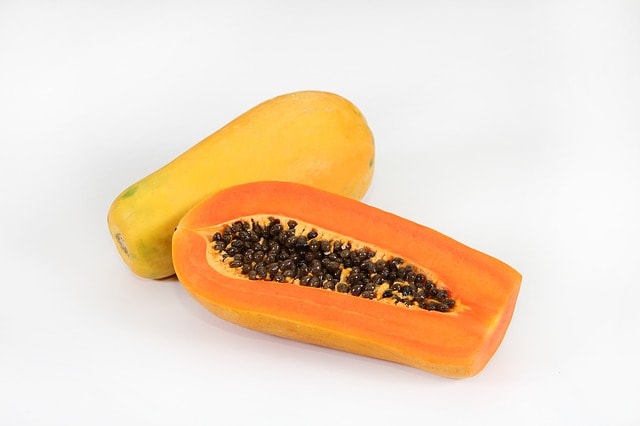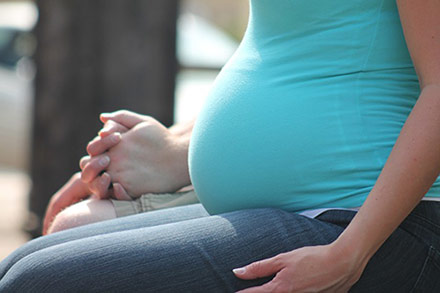Expectant mothers are eating for two, and what they eat the baby will also receive. This is why nutrition and pregnancy are interrelated if the mom and baby are to stay healthy all throughout.
There are several foods that expert advice should be avoided during pregnancy. One of these is papaya. How bad it is for an expectant mother will depend on the kind of papaya in question.
To avoid problems and misunderstandings, you should know the truth about eating papaya during pregnancy.

It’s a matter of what
Ripe papaya is good for a pregnant mother.
It is the raw and unripe variety that is not.
This is because it contains pepsin and papain that are not good for the baby. It also increases the risk of uterine contractions and fetal development, among others. More on that later.
It is a matter of when
Eating unripe papaya should be avoided all throughout the pregnancy.
Eating ripe papaya is highly recommended during the third trimester. This is because it helps prevent heartburn that is common during this stage of pregnancy.
It should also be eaten after labor and delivery and while breastfeeding, since it can enhance production of breast milk in nursing mothers. The proteolytic enzymes in papayas can aid in lactation.
The carotenoids, beta-carotene, and vitamin A, contained in papayas are also good for the body.
Papaya is a good source of fiber, vitamin C, folate, and potassium which is why it is recommended for an expectant mother. But remember to only eat the ripened variety.
What are the risks of eating unripe papaya?
- Causes uterine contractions and induced labor
Unripe papaya has latex that acts as oxytocin and prostaglandin that induces labor and delivery. But it is the papain in the latex that activates oxytocin and prostaglandin which means there’s really no going around it.
Papain may be a helpful digestive system in ripe papaya but not in a raw and unripe fruit. This is because it mimics prostaglandins that doctors use to kick-start the labor process.
- Causes problems in fetal development
Pepsin and papain in unripe papayas can cause abnormalities in the fetus developing in a mother’s womb. It can limit fetal growth and development and even cause anti-implantation of a zygote, post-implantation loss, and embryotoxicity.
- Weakens fetal essential membranes
Considered as a proteolytic enzyme, papain is used for cell dissociation. This means it can reduce the vital membranes that impact a fetus survival. It can also delay the growth and tissue development of fetal cells.
- Causes hemorrhoids and edema
An unripe papaya can exert excessive amounts of pressure in the blood vessel, resulting in edema and hemorrhage. This further affects fetal development inside the uterus because of decreased blood perfusion.
- Can cause miscarriage due to excessive bowel movement
Although papaya can cure inflammatory bowel problems and relieve constipation because of its high fiber content, it can also promote excessive bowel movement. This will exert pressure on the uterus that can cause miscarriage.
- Induce latex allergies
Such allergies are not only a result of surgical gloves that are used in clinics and hospitals.
A pregnant woman allergic to latex can also suffer the same problem when she comes in contact with anything that contains latex, including food. Since unripe papaya has latex within its pulp, eating it can lead to latex allergies.
It is important to note, however, that anyone allergic to latex may also be allergic to chestnut, apples, bananas, rice, wheat, and other foods that contain plant latex. This is according to the New York State Department of Health.
What are the nutritional benefits of eating ripe papaya?
- Provide essential nutrients
You and your unborn baby need a variety of vitamins and nutrients that can be found in ripe papayas. It is, after all, an excellent source of fiber, antioxidants, and vitamins A, C, and E.
- Gives the immune system a boost
The body needs vitamins A, B and C, potassium, and beta-carotene to boost the immune system. All of these nutrients are found in ripe papaya which is why pregnant mothers should make it a part of their diet. Vitamin B is also vital for fetal development.
- Prevents heartburn and constipation
As previously mentioned, eating ripe papaya during the 3rd trimester can help prevent heartburns because of its high folic acid content. The high fiber content, on the other hand, can help prevent constipation and relieve bloating and most gastric conditions.
Conclusion
Eating papaya is good for an expectant mother and her unborn child provided that it is ripe. Understand the difference between the ripe and unripe papaya can dispel whatever worries and misconceptions you might have about eating the fruit.
Now that you know which type of papaya is good for you, stuck up on the ripe ones and avoid the raw and unripe variety.



